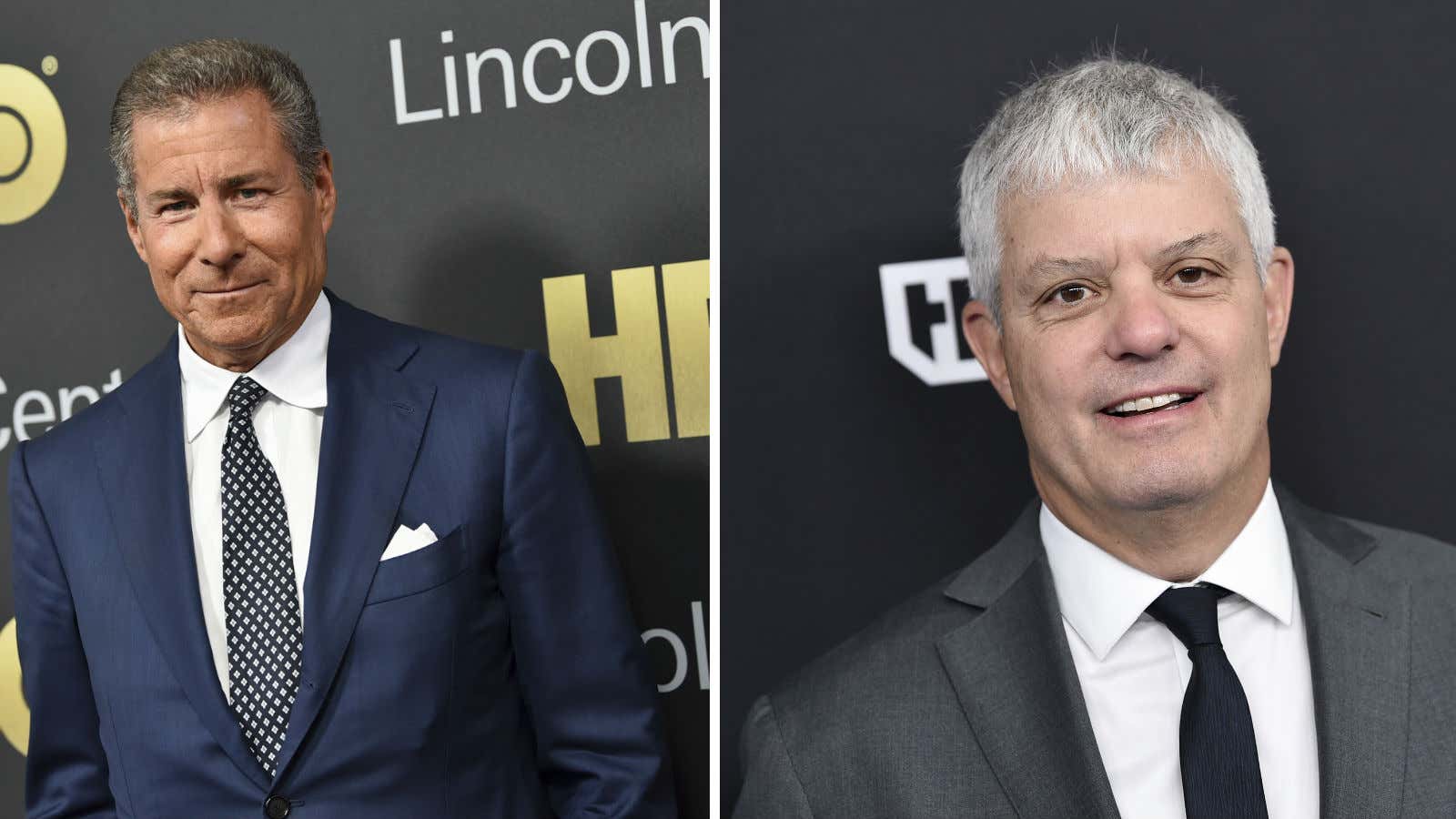Content is quickly becoming a commodity at the new AT&T.
The phone company, which bought Time Warner for $81 billion last year (paywall), is making big leadership changes in the media company’s TV business as it prepares a bigger push into streaming-video later this year. HBO boss Richard Plepler, who helped build the premium-TV channel into the content powerhouse it is today, is leaving after 27 years at the network. And David Levy, president of Turner Broadcasting, is exiting the cable company he spent his entire professional life at and long aspired to lead, after more than three decades.
With two longtime TV executives departing, WarnerMedia, as Time Warner is now called, is expected to combine HBO and Turner’s entertainment channels under a new unit, which will also include an upcoming streaming service, the Wall Street Journal reported (paywall) earlier this week. Former NBC Entertainment chairman Bob Greenblatt is in talks to lead the new segment.
The shakeup signals a new day at WarnerMedia—one where content matters more than any one TV brand or network. AT&T executives have talked about combining content from many of WarnerMedia’s entertainment brands, such as HBO, Warner Bros., Cartoon Network, the CW, and Adult Swim, under one streaming service, which will also aggregate content from other studios. In that model, you could see high-end HBO dramas like Game of Thrones or Westworld appear next to TBS talk shows like Full Frontal with Samantha Bee or Adult Swim series like Robot Chicken.
It is very much a Netflix mentality to dump programming from many different genres and with varying degrees of production quality into one platform, but it’s unclear whether audiences have an appetite for even more similar streaming services. WarnerMedia’s platform will differ from Netflix in that it will have three tiers of content, each with its own price point.
Currently, WarnerMedia’s flagship streaming service is HBO Now, a subscription offering that launched in 2014 and features HBO content. WarnerMedia appointed Kevin Reilly as chief content officer for the new WarnerMedia service in December. Reilly said this month that HBO would also be core to the new service, which will eventually add original programming of its own. HBO, which has long emphasized quality over quantity and been the poster child for premium TV, is expected to double the number of hours of output as part of the push.
The increasing lack of autonomy at HBO was cited in reports as one of the main reasons Plepler choose to depart now.




